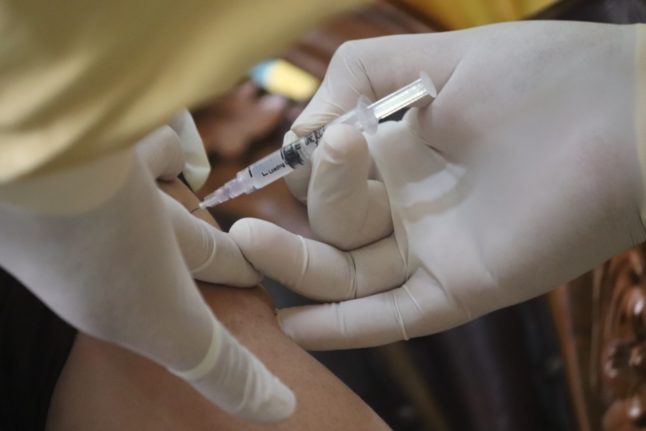In effect, this would be a tightening of the existing rules.
Everywhere that currently requires people to be vaccinated, recently recovered from the virus or tested negative – i.e. the 3G rule – would instead only allow vaccinated people.
3G to 1G: Could Austria make bars, gyms, hairdressers and events ‘vaccinated only’?
This means that the unvaccinated would effectively only be allowed to go on public transport, to supermarkets and to a handful of other areas.
Vienna sought to introduce such a plan in September, but held off in the hope of a unified federal response.
Federal Health Minister Wolfgang Mückstein indicated he would be welcome to a further tightening of rules in October, although did not specifically say that everywhere would be made ‘vaccinated only’.
Would such a move be legal?
Leaving aside the moral arguments – that’s what the comments sections are for, after all – and whether the plan will get enough political support, one important question is whether such a move would be permissible under Austrian law.
A number of legal experts have indicated they feel the law would survive a constitutional challenge if it was put in place.

Heinz Maier, an expert in Austrian constitutional law, told Kurier that the court may look at it in a different way.
Rather than a rule which placed additional restrictions on the unvaccinated, a law change would in effect place fewer restrictions on the vaccinated – which is a growing majority of the population.
Therefore, if the law was cast in such a fashion, it could be said to uphold the rights of people to avoid further lockdowns, rather than the rights of a vocal minority who don’t want to get the vaccine.
Christoph Bezeme, another constitutional expert from the University of Graz, said any restrictions of this nature will be legal provided they avoid risks to human health.
BY taking measures which would encourage vaccinations, public health objectives could be achieved, the expert said.
“But you have to be able to justify objectively that the vaccination has clear advantages in terms of health policy compared to ongoing testing.”
Karl Stöger, medical law expert, told Ö1 the high costs of covering the tests might mean that such a measure was deemed to be proportionate.
“In my opinion, a 1-G rule made with a sense of proportion has a good chance of surviving the Constitutional Court.”
And those against…
The legal experts however were not unanimously in support of the measure.
Viennese lawyer Florian Höllwarth told Kurier that the measure might not survive a constitutional challenge, particularly as there are some people who cannot be vaccinated for health reasons.
The Austrian government has however frequently said that those who have a legitimate health-based objection – with accompanying medical evidence – will receive some form of exempt status.
Höllwarth said that the rule could be deemed as a way of “successfully dividing the population” and as such may fail a challenge.



 Please whitelist us to continue reading.
Please whitelist us to continue reading.
Member comments